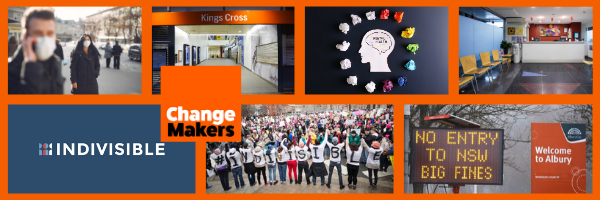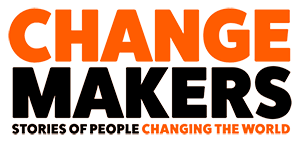Mental Health, Insight and the Corona Moment

This week a second CoronaVirus lockdown began in Melbourne, Australia, joining many global cities still in lockdown. It sparked greater focus on the mental health crises that are rising alongside the disease.
To date, the standard response to mental health crises is more doctors, more clinicians. That may be needed for helping people in acute need, but is it sufficient for creating healthier minds long term?
The greatest tool for living well with a mental illness is insight. Being able to see the “early warning signs.” But where does insight come from?
Insight is a product of relationships and time. Insight isn’t cleverness, it’s experience digested through reflection: like, “oh, I see, when x happens I start to sleep less – I’ll try something different.” That, times a million.
Insight is a social responsibility as much as it is a personal one. We need places and people where we can have these hard conversations safely. We also need a society that encourages us to all face what is really happening. To be real with each other.
After the Spanish Flu, many nations rocketed into the Roaring Twenties. Death and emotional turmoil were quickly pushed aside, replaced by the great escapes of going out, dancing, money and alcohol.
One hundred years later we have another global crisis. It is radically different depending on who and where you are, but it is serious nonetheless. Yet when given the opportunity, too many of our political leaders want us to ‘snap out’ of this and go back to a new normal. We saw this in Australia in June, and we see it in many of President Trump’s Tweets.
But the idea of ‘normal’ denies a genuine examination of what we are going through – the kind habitual reflection that can generate insight.
We can’t wipe away the mental health crisis. We never could. Doctors and medication give people space to cultivate personal and social strengths that help those of us with an illness (or what I call a brain difference) – live with it for life.
Similarly, a brief wave of stimulus (like job keeper and seeker) doesn’t suddenly create a new normal. Encouraging people to ‘get back to it’ denies us the human moment for reflection – to explore what happened – how it changed us – and how we might be different.
I have a mental illness, and I take my medication. But the personal reflection, the talking to others in private and in public has changed me in unexpected, powerful ways (a talk I gave about this is here). Similarly, this is a powerful testimony out of California. I can imagine what it would look like if we did this as a society.
This pandemic trauma could lead to a time of insight, the garnering of lessons that we didn’t learn in the 1920s. That will require us all to change – for our institutions to create safe spaces for people to relate, for us to find ways to be open and trust each other, for us to find the leaders who model this kind of practice. Let’s hope we find a way.
Amanda
Join our weekly email list to hear our latest musings, podcasts and training. Click on this button to subscribe:





